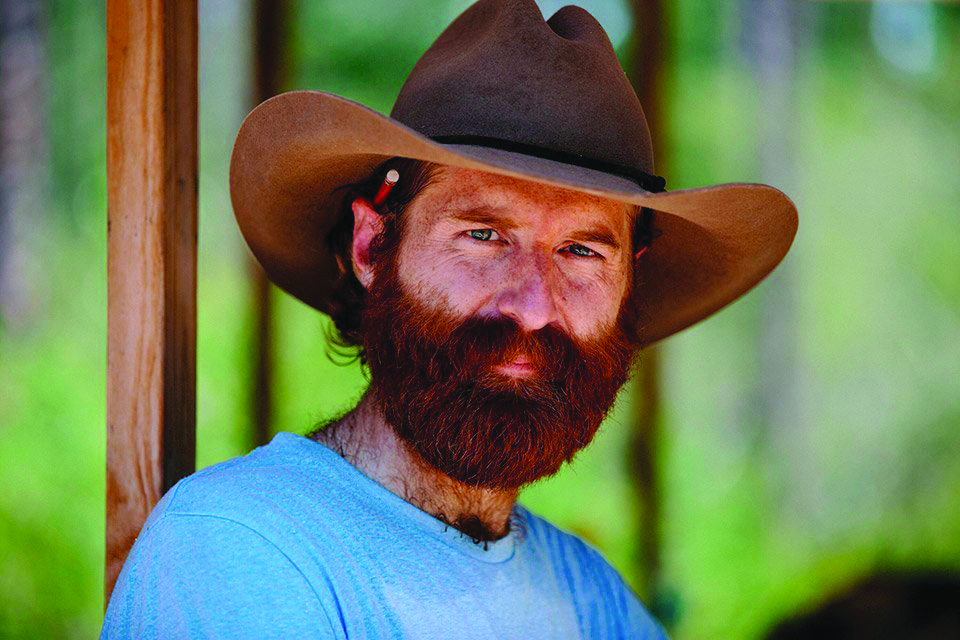BY SEAN DIETRICH
OPINION —
Pineview Street. A nondescript house. Off-white. One story. Nothing fancy. Nice neighborhood. Manicured lawns.
On the back of the house is a newly built wheelchair ramp. I knocked on the door. The caregiver answered.
Inside, the first thing you saw was medical stuff. Prescription bottles. Walkers. Plywood duct-taped over the carpet, so wheelchairs could move freely. A hospital bed sat in the den.
“You have visitors,” the caregiver announced.
The old man was sitting in his wheelchair. Facing the picture window. He turned and smiled.
White hair. Robin’s-egg blue eyes. He’d lost weight since I last saw him. But the smile was still there.
He was born in 1936, reared in Monroe County, Alabama. And John Finklea still has the voice of a preacher. It’s all about inflection.
“How’s my buddy?” he said, pumping my hand.
He’s old school. The kind of preacher who preached six or seven revivals in a week, then mowed the church lawn on Saturday night.
He’s baptized throngs in Brewton, Alabama. And buried half the residents in Union Cemetery.
Recently, he had a bad fall. It caused a brain bleed. He’s doing better now, but one of his legs is paralyzed. And he’s relearning how to walk.
There are stories about him. Lots of them.
“Brother John hung out with the drunks,” one local woman told me. “He wasn’t like any preacher we’d ever known. He’d go fishing with’em, hunt with’em, laugh with’em. He’d do everything but drink and cuss.”
He sat in deer stands, shoulder-to-shoulder with rowdy individuals, cheaters, and men with untoward reputations. And he never thumped a Bible at them.
“He was just their friend.”
But when the lives of his friends fell apart; when the proverbial fertilizer hit the fan, who do you think they called first?
“I remember one time,” said a local man, “Brother John baptized a man in town who had been bad on drugs. There were some people who got so mad, I thought they were going to burn First Baptist to the ground.”
I’ve been called upon to sing at funerals alongside Brother John. We even asked him to co-officiate our wedding.
Once or twice, I’ve played music at the 9-member country chapel in Sepulga Springs, where he preached every Sunday in his later years.
There was no microphone. No frills. No air movement. Everyone sweat profusely and sat in their own pew.
His sermons were brief. I never heard him shout. And he was always the first to cry when the hymns were particularly good.
Something else about him. They don’t call him “Preacher.” They never have. And you won’t hear anyone call him “Pastor,” or “Doctor,” like the young preachers want to be called. They call him “Brother.” It’s always been Brother.
One local said: “He’s the kind of man who visited every sick person in this town. Anyone who called, he was there, holding your hand. He’d change your tire, or tow your car out of a ditch.
“Didn’t matter if you was drunk, or stoned, or whatever bad thing you done. John Finklea was right there with you.”
“He ain’t just a preacher,” she added, “he’s a good man. Not a lot of them left. I just hope people don’t forget to visit this good man.”
Me too, ma’am.
Me too.
Sean Dietrich is a columnist, novelist and stand-up storyteller known for his commentary on life in the American South. His column appears in newspapers throughout the U.S. He has authored 15 books, he is the creator of the Sean of the South Podcast and he makes appearances at the Grand Ole Opry.

